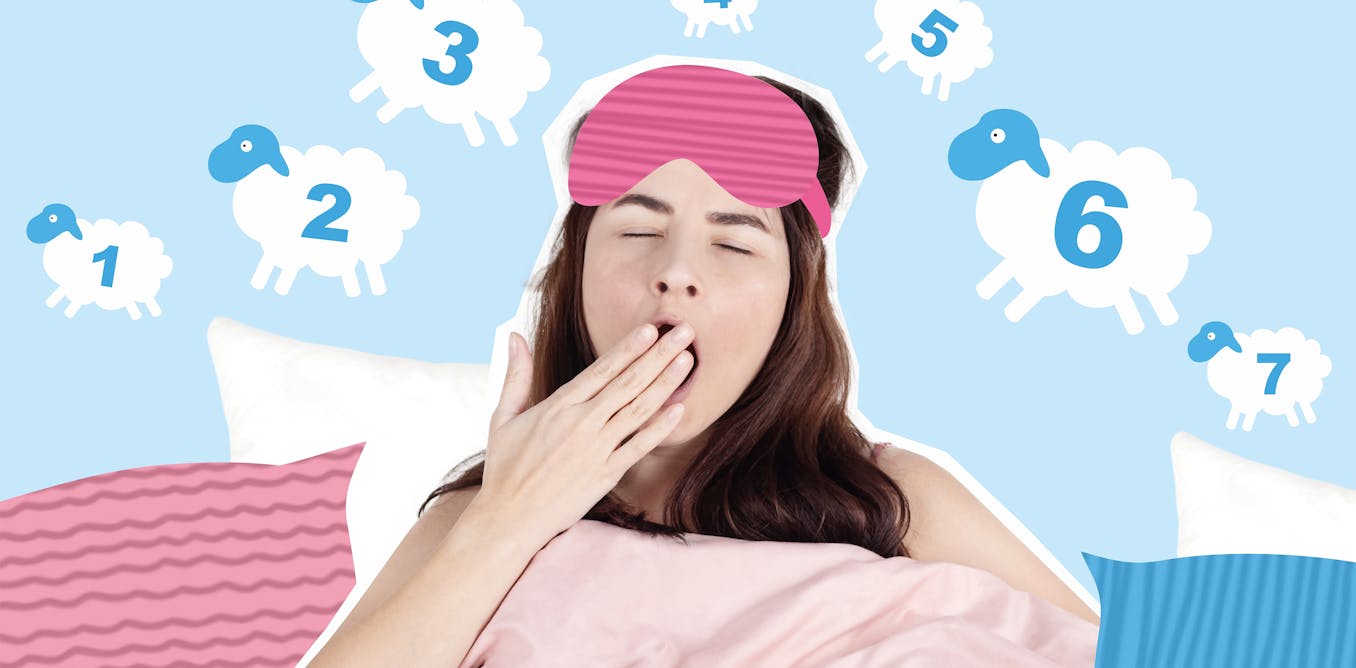Here is the rewritten content:
Will you get an extra hour’s sleep this weekend? Probably not, new research says
The myth of the extra hour’s sleep
A lot of people dread the clocks going back an hour in winter – but reassure themselves that at least they’ll get an extra hour’s sleep. However, our new study reveals that most people do not (or cannot) take advantage of the full extra hour of sleep in autumn.
The science behind the clock changes
Daylight saving time (DST) is the practice of moving the clocks one hour forward in spring and one hour back in autumn. It was introduced during the first world war as a way to cut energy costs. Today, it is in operation in around 70 countries and affects a quarter of the world’s population.
The sleep impact of DST
This "springing forward" and "falling back" is widely thought of as a loss of one hour of sleep in spring and a gain of one hour of sleep in autumn. However, research suggests we may lose sleep for about a week after both clock changes as we struggle to adapt to the new time.
What’s new in our research?
Previous studies have relied on people reporting their own sleep patterns in diaries or surveys. However, this may not be accurate because people sometimes forget or lie about how long they slept for. Our study used activity monitors to record people’s sleep patterns for two weeks surrounding the spring and autumn clock changes in 2013-2015. We analyzed sleep data from 11,800 people who wore activity monitors for one or more days during this period.
What did we find?
We found that people slept for just over half an hour more on the Sunday of the autumn clock change than the surrounding Sundays. However, people slept for around an hour less on the Sunday of the spring clock change.
The catch-up effect
Previous research suggests people sleep for less on the weekdays immediately after the clock changes than the weekdays before. In contrast, our study found that people were catching up on sleep on the Monday to Friday after both clock changes. This trend was stronger in spring after people had lost an hour of sleep. On average, people slept seven minutes more per weeknight after the spring clock change and three minutes more per weeknight after the autumn clock change than the previous week.
The impact of age and gender
When we broke down the data, we found that this pattern of catching up on sleep was not seen in women. In fact, women often slept for less on the weekdays after the clock changes than before. This could be because women experience higher levels of insomnia and sleep difficulties and that these problems are exacerbated by the clock changes.
Why does this matter?
Although the sleep loss seen over the spring clock change in our study has consequences for health, as just one night of bad sleep has been associated with a decline in mental and physical health. Research has found that the clock changes themselves are associated with an increase in heart attacks, strokes, traffic accidents, and depression.
Should the clock changes be abolished?
Sleep experts argue that stopping the clock changes is the best way to prioritize health. However, the decision is not straightforward. Plans to stop the clock changes have stalled due to disagreements over what time to adopt permanently. Some argue for permanent summer time, while others advocate for permanent standard time.
Conclusion
The reality is that most people do not (or cannot) take advantage of the full extra hour of sleep in autumn. While our study reveals some patterns in the way people adapt to the clock changes, the overall impact on sleep patterns is more complex. As the debate around the clock changes continues, it is crucial that we prioritize the effects on sleep and health.
FAQs
Q: How did you conduct the study?
A: We used activity monitors to record people’s sleep patterns for two weeks surrounding the spring and autumn clock changes in 2013-2015.
Q: What was the sample size of the study?
A: The sample size was 11,800 people.
Q: What were the main findings of the study?
A: We found that people slept for just over half an hour more on the Sunday of the autumn clock change than the surrounding Sundays. However, people slept for around an hour less on the Sunday of the spring clock change.
Q: Did you find any differences in sleep patterns between men and women?
A: Yes, we found that women often slept for less on the weekdays after the clock changes than before, while men caught up on sleep after the clock changes.
Q: What are the implications of your study for policymakers?
A: Our study highlights the need for policymakers to prioritize the effects on sleep and health when considering the future of the clock changes.
Recommended Products:
-
Sale!

4-in-1 Sleep Aid (120 Caps) w/Apigenin 50mg, Magnesium Glycinate 200mg, L Theanine 250mg & Valerian Root for Sleep Aid 250mg | Apigenin Supplement for Sleep | Sleeping Pills
Original price was: $25.99.$19.99Current price is: $19.99. Buy Now -
Sale!

Nature Made Wellblends Sleep Longer, Melatonin 10mg, L theanine 100 mg, and GABA 100mg, Sleep Supplement, 35 Tri-Layer Tablets
Original price was: $15.99.$10.39Current price is: $10.39. Buy Now -

Melatonin 60mg-Fall Asleep Faster, Stay Asleep Longer,High Dose
$23.99 Buy Now



